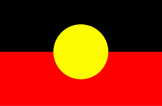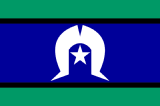Predominantly women, foster carers are paying twice for nurturing children and young people in care and now their one source of therapeutic support is about to lose funding.
This International Women’s Day, 8 March 2021, the Foster Care Association of Victoria (FCAV) recognises that the women who have provided foster care over the last 12 months have borne a high social and economic cost because of the impacts of the COVID-19 pandemic on top of existing stressors in the system.
“There should be a process put in place from the outset that accommodates (funding and support) for these disadvantaged children. Many children coming into care don't even have a medicare card or healthcare card to start with. Spending time trying to rectify these injustices takes away time to provide the care, love, support and therapy these children need.” Sue, Carer.
It is well established that women deliver the bulk of paid and voluntary care services in Victoria, including foster care. The sectors that have been hardest hit by the COVID-19 pandemic include the education, health and hospitality sectors which all have high levels of female employment and have been impacted most by unemployment due to the pandemic. Women are also more likely than men to be exhibiting an increase in clinically significant signs of depression and anxiety.
Women make up over 83% of volunteer foster carers in Victoria. Volunteering for foster care frequently requires women to work part-time on a reduced salary, accept lower paying jobs to ensure they have the flexibility to support the placement of high needs children or, cease paid work altogether. Workplace supports such as childcare are frequently unavailable or difficult to access making work force participation even more challenging.
Majority of the casual workers unable to access JobKeeper are women
Well over 200,000 women lost their jobs in Victoria. Most jobs lost in part-time and casual roles
1% women currently unemployed in Victoria compared to 5.9% for men
Women depleted their superannuation at a higher rate than men when withdrawing emergency COVID-19 funds
The payroll impact on women has been greater than men across many industries.
Women also make up the vast majority of front line workers in the health and education sectors making their role as both a carer and worker more complex with risks of exposure and quarantine periods.
The Foster Care Association of Victoria is calling on the Government to increase the Care Allowance to reach parity with NSW rates and to meet the true cost of caring. We ask for adequate funding for placement supports that will assist women carers to participate in the workforce and community, and ensure every child in care has adequate funding to meet their needs and match the resources available to their young peers. No child should miss out due the limited means of their carer. No carer should be asked to fund the placement as well as undertake the complex care they provide.
The economic and social burden shouldered by women foster carers in the past 12 months has been a significant source of stress and has affected their mental health. In response, the FCAV has developed a Carer Assistance Program (CAP) providing free therapeutic support to carers. The recent tabling of the Royal Commission into Mental Health in Victoria recommendations to support cohorts exposed to increased stress, include the widespread availability of mental health and psychosocial support, and a commitment to building mental health services for the future to underpin the mental health recovery from COVID-19.
The Carer Assistance Program has been lauded as a key to retaining and supporting carers who would otherwise have left the system and has provided targeted support which is not provided by other services.
Evaluation data on the CAP shows 100% of respondents agreed. “It is helpful to have a service for carers, such as CAP, which understands the Home Based Care sector and the issues faced by foster carers”.
Funding for this program ends in June 2021.
We implore the Victorian Government to fund the FCAV’s Mental Health and Wellbeing Program including the CAP into 2021/22.
“(It) was wonderful to talk to someone who already understood the complexity of carer issues…it was so helpful to just be able to dive into talking about life as a carer and some of our struggles without having to talk about a back story.” Carer, Victoria of the CAP.
These women dedicate themselves to providing high level care with implications on their superannuation, ability to save, ability to buy property and prepare financially for their retirement. On top of this, the real costs of providing care far exceeds the care allowance provided by the Government. Estimated shortfalls come in at over $3000 a year just for basic day to day costs, let alone if extra expenses arise or they take children on a holiday.
https://lens.monash.edu/@coronavirus-articles/2020/12/07/1381836/women-bear-the-cost-of-the-covid-19-care-load
In 2021 the base rate in Victoria for a child 0-7 is $410.47 per fortnight. In NSW the base rate carer allowance for a child 0-4 is $503 per fortnight and for children 5-13 is $567 per fortnight.)


